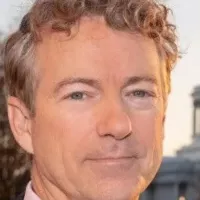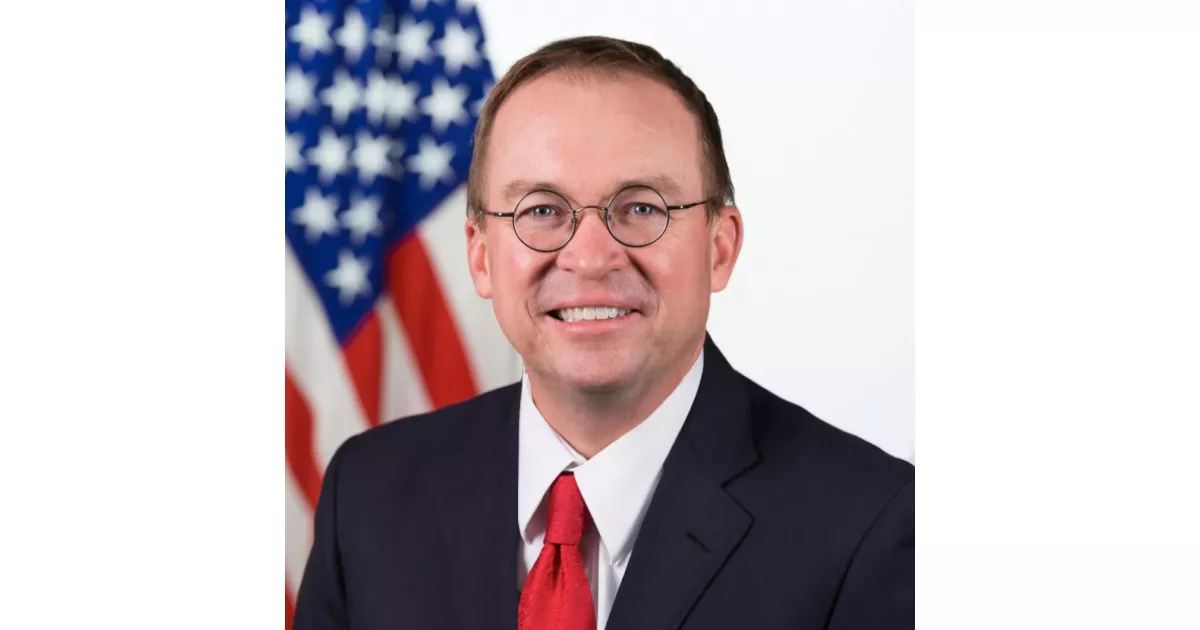Mick Mulvaney is a prominent figure in American politics. He held key positions within the Trump administration, serving as the director of the Office of Management and Budget (OMB) from February 2017 to March 2020 and as acting White House Chief of Staff from January 2019 to March 2020. Before joining the Trump administration, Mulvaney served as a U.S. Representative. His career reflects a blend of legislative and executive experience within the American political system.
July 21, 1967: Birth of Mick Mulvaney
Mick Mulvaney was born on July 21, 1967.
1983: John M. Spratt Jr. begins tenure in South Carolina's 5th congressional district
In 1983, John M. Spratt Jr. began serving South Carolina's 5th congressional district.
1989: Mick Mulvaney graduates from Georgetown University
Mick Mulvaney graduated with honors from Georgetown University in 1989, where he majored in international economics, commerce, and finance.
1992: Mick Mulvaney starts practicing law
Mick Mulvaney began his law practice at the firm James, McElroy and Diehl in 1992.
1992: Mick Mulvaney receives Juris Doctor
Mick Mulvaney earned his Juris Doctor degree in 1992.
1997: Mick Mulvaney leaves law practice
In 1997, Mick Mulvaney concluded his time practicing law at James, McElroy and Diehl.
1998: Marriage to Pamela West
Mick Mulvaney married Pamela West in 1998, whom he met while in line at a bookstore during his time as a law student.
1998: Federal Vacancies Reform Act
The Federal Vacancies Reform Act of 1998 allowed President Trump to appoint Mulvaney as interim replacement without Senate confirmation. This led to a legal dispute regarding the appointment process.
2000: Unpaid Nanny Taxes
From 2000-2004, Mulvaney failed to pay $15,000 in payroll taxes for his triplets' nanny. He began paying back taxes after filling out a questionnaire.
2000: Birth of Triplets
In 2000, Mick Mulvaney and his wife, Pamela West, welcomed triplets named Finn, James, and Caroline.
2004: Unpaid Nanny Taxes Issue Resolved
Mulvaney failed to pay payroll taxes for his children's nanny from 2000-2004. He later rectified this oversight.
2006: Mick Mulvaney named Freshman Legislator of the Year
In 2006, the Palmetto Family Council recognized Mick Mulvaney as Freshman Legislator of the Year for his contributions to the Woman's Ultrasound Right to Know Act.
2006: Mick Mulvaney's election to the South Carolina House of Representatives
Mick Mulvaney was elected to the South Carolina House of Representatives in 2006.
2007: Mick Mulvaney's service in the South Carolina General Assembly begins
Mick Mulvaney started his service in the South Carolina General Assembly in 2007.
2008: Mick Mulvaney fills vacancy in the South Carolina Senate
Mick Mulvaney filled a vacant position in the South Carolina Senate in 2008.
2009: Nanny Tax Controversy Comparison
In 2009, Senate Democrats noted that past Democratic nominees' failure to pay taxes for their household employees, like Tom Daschle, was seen as disqualifying, bringing Mulvaney's case back into the spotlight.
2010: Mick Mulvaney named Legislator of the Year
Mick Mulvaney was named Legislator of the Year in 2010 for his support of the State's Emergency Medical Services (EMS).
2010: Unclear event in 2010 related to a Wikipedia formatting element
There is a Wikipedia formatting element associated with 2010, and its relation to Mick Mulvaney is not clear.
2011: End of Mick Mulvaney's time in the South Carolina General Assembly
In 2011, Mick Mulvaney concluded his service in the South Carolina General Assembly.
2012: No specific event described
No specific event was described for 2012 related to Mick Mulvaney.
December 10, 2013: Bipartisan Budget Act of 2013
On December 10, 2013, Representative Paul Ryan and Senator Patty Murray announced a bipartisan budget deal, setting spending caps for Fiscal Year 2014 at $1.012 trillion and for Fiscal Year 2015 at $1.014 trillion.
April 9, 2014: Mulvaney's Budget Proposal
On April 9, 2014, Mick Mulvaney put forth a budget proposal based on President Obama's proposal. It was intended to force a vote on the President's budget, which subsequently failed.
2014: Fiscal Year 2014 Budget
In 2014, the federal government's spending was capped at $1.012 trillion as part of the Bipartisan Budget Act of 2013. This was higher than the sequester level of $967 billion.
2014: Debate over Sequester Cuts
In 2014, there were discussions and disagreements on whether to adhere to the spending cuts outlined in the sequester or to adopt the Bipartisan Budget Act of 2013, which involved increased spending levels.
2014: No specific event described
No specific event was described for 2014 related to Mick Mulvaney.
September 2015: Endorsement of Rand Paul
In September 2015, Mulvaney endorsed Senator Rand Paul for the 2016 Republican presidential primaries.
2015: Debate over Sequester Cuts
In 2015, there was debate surrounding the sequester cuts, with some Republicans advocating for maintaining the lower spending levels mandated by the sequester, while others supported the Bipartisan Budget Act of 2013, which increased spending.
2015: Mick Mulvaney supports Regulatory Improvement Act
Mick Mulvaney expressed support for the Regulatory Improvement Act of 2015.
2015: Mick Mulvaney votes against government-funding resolution
Mick Mulvaney voted against a government-funding resolution in 2015, partly due to its inclusion of Planned Parenthood funding.
2015: Fiscal Year 2015 Budget
The Bipartisan Budget Act of 2013 set the spending cap for Fiscal Year 2015 at $1.014 trillion. The deal also reduced some of the spending cuts required by the sequester.
July 2016: Mick Mulvaney addresses criticism for meeting with John Birch Society
In July 2016, Mick Mulvaney responded to criticism regarding his meeting with the John Birch Society, emphasizing his commitment to engaging with groups across the political spectrum.
December 2016: President-elect Trump nominates Mulvaney as OMB Director
President-elect Donald Trump nominated Mick Mulvaney for the position of OMB Director in December 2016.
December 16, 2016: Nomination for OMB Director
On December 16, 2016, President-elect Donald Trump nominated Mick Mulvaney to be the director of the Office of Management and Budget.
2016: Trump-Ukraine Scandal Involvement
In 2016, Mick Mulvaney became involved in the Trump-Ukraine scandal.
2016: Unsubstantiated theory about Ukraine's role in 2016 election hacking emerges
In 2016, an unsubstantiated theory surfaced suggesting Ukraine's involvement in the hacking of Democratic Party emails.
2016: 2016 Republican Presidential Primaries
Mulvaney endorsed Rand Paul in the 2016 Republican Presidential Primaries.
2016: No specific event described
No specific event was described for 2016 related to Mick Mulvaney.
February 2017: Mick Mulvaney becomes Director of the Office of Management and Budget
In February 2017, Mick Mulvaney became the Director of the Office of Management and Budget (OMB).
February 16, 2017: Senate confirms Mick Mulvaney as OMB Director
On February 16, 2017, the Senate confirmed Mick Mulvaney's appointment as the Director of the OMB.
March 2017: Accusation of Obama Administration Manipulation
In March 2017, Mulvaney accused the Obama administration of manipulating unemployment figures, a claim that was widely disputed.
March 2017: Justification for Budget Cuts
In March 2017, while promoting the Trump administration's budget proposal, Mulvaney defended cuts to programs like Meals on Wheels, claiming a lack of results, a statement contradicted by research citing positive impacts.
March 2017: Criticism of the CBO's Assessment of the AHCA
Mulvaney questioned the Congressional Budget Office's ability to assess the American Health Care Act in March 2017, citing perceived inaccuracies in their Obamacare predictions, a critique fact-checkers countered.
April 28, 2017: Ethics Waivers Dispute
On April 28, 2017, Mick Mulvaney refused a data request from the Director of the U.S. Office of Government Ethics to review ethics waivers granted to former lobbyists in the executive branch, seemingly questioning the OGE's authority.
May 2, 2017: "Good Shutdown" Remarks
During a press briefing on May 2, 2017, Mulvaney suggested that a "good shutdown" of the government might be necessary, defining it as one that "fixes Washington, D.C. permanently." He also defended a funding package lacking funds for Trump's border wall. The call was marked by technical issues.
May 2017: Criticism of CBO's Healthcare Act Assessment
In May 2017, Mulvaney criticized the CBO's estimate that the American Health Care Act would lead to a significant decrease in health insurance coverage, deeming it "absurd."
May 22, 2017: Presentation of Trump's 2018 Budget
On May 22, 2017, Mulvaney presented Trump's 2018 budget proposal, which included cuts to several departments and social programs while increasing defense spending and funding for a border wall.
November 2017: Mick Mulvaney becomes acting director of the CFPB
In November 2017, Mick Mulvaney took on the role of acting director of the Consumer Financial Protection Bureau (CFPB).
November 28, 2017: Appointment as CFPB Acting Director
On November 28, 2017, after being appointed acting director of the CFPB by Trump, a legal dispute arose challenging Mulvaney's appointment. A court battle ensued, and a judge ruled in Mulvaney's favor, allowing him to serve as acting director.
December 2017: Tax Cuts and Jobs Act of 2017
In December 2017, Trump signed the Tax Cuts and Jobs Act of 2017. Its implementation was delayed by disputes between Mulvaney and Treasury Secretary Mnuchin.
2017: Mick Mulvaney reiterates stance on government shutdowns
After being appointed head of the OMB in 2017, Mick Mulvaney reaffirmed his position on government shutdowns.
January 2018: Cancellation of Investigations and Lawsuits
In January 2018, Mulvaney cancelled an investigation into a South Carolina payday lender and dropped a lawsuit against an online lender. He also suspended a short-term payday loan regulation.
January 18, 2018: CFPB Budget Request
Mulvaney submitted a quarterly budget request of $0 for the CFPB to the Federal Reserve on January 18, 2018.
February 2018: Release of 2019 Budget Proposal and Bipartisan Budget Act
In February 2018, Mulvaney unveiled the President's 2019 budget proposal, which projected a significant increase in the federal deficit. The Bipartisan Budget Act of 2018, signed later that month, allowed for substantial yearly deficits.
March 2018: Consolidated Appropriations Act, 2018
In March 2018, Congress passed the Consolidated Appropriations Act, 2018, funding government operations until the end of the fiscal year.
April 2018: Lack of Enforcement Actions
By April 2018, Mulvaney had not taken any enforcement action against financial companies since becoming head of the CFPB.
April 2018: Mick Mulvaney discusses campaign contributions and lobbyist meetings
In April 2018, Mick Mulvaney discussed campaign contributions and lobbyist meetings, stating that campaign contributions and lobbyist meetings were related when he was a congressman.
April 2018: Wells Fargo Fine
In April 2018, Mulvaney announced a $1 billion fine against Wells Fargo for fraudulent practices. Reports indicate Mulvaney considered dropping the case, which had begun before his tenure. Trump subsequently warned the bank would be fined.
April 2018: Raises for Appointees
In April 2018, Mulvaney gave raises to some of his political appointees at the CFPB. He had hired at least eight new appointees and created new positions for some.
April 2018: CFPB Annual Report Recommendations
In April 2018, Mulvaney's CFPB annual report to Congress recommended that the bureau's funding require congressional appropriations, its rulemaking require legislative approval, and that the director be removable without cause by the President.
April 2018: Proposal to Restrict Public Access to Consumer Complaints Database
Mulvaney proposed to shut down public access to the CFPB's online consumer complaint database in April 2018. Due to legal requirements, the database could only be closed to public view, not shut down entirely. It was later revealed that several companies with numerous complaints against them had donated to Mulvaney’s campaigns.
May 2018: Limited Work Hours at CFPB
In May 2018, it was reported that Mulvaney was working reduced hours at the CFPB.
August 2018: Potential Rollback of Military Lender Oversight
In August 2018, Mulvaney reportedly considered rolling back oversight of military lenders, impacting the Military Lending Act designed to protect military personnel and families from financial exploitation.
December 14, 2018: Appointment as Acting White House Chief of Staff
Trump appointed Mulvaney as acting White House chief of staff on December 14, 2018. This appointment followed Mulvaney’s previous criticism of Trump.
December 2018: End of Mick Mulvaney's term as acting director of CFPB
Mick Mulvaney's time as the acting director of the CFPB concluded in December 2018.
2018: Trump's 2018 Budget Proposal
The Trump administration's 2018 budget proposal, presented by Mulvaney, aimed to reduce domestic program spending while boosting military spending and allocating funds for a border wall.
January 2019: Mick Mulvaney begins role as Acting White House Chief of Staff
In January 2019, Mick Mulvaney took on the position of Acting White House Chief of Staff.
March 2019: Misleading Healthcare Claims
In March 2019, Mulvaney falsely claimed that every White House healthcare plan since Trump's election covered pre-existing conditions. This claim was widely reported as misleading and inaccurate, with fact-checkers pointing out that the proposals would weaken protections for those with pre-existing conditions.
April 2019: New York Times Review
In April 2019, The New York Times reviewed Mulvaney's leadership of the CFPB and concluded that he had undermined the bureau’s enforcement and regulatory powers.
October 17, 2019: Press conference on withheld military aid to Ukraine
On October 17, 2019, Mick Mulvaney held a press conference where he disclosed that military aid to Ukraine had been partially withheld pending an investigation into unsubstantiated claims about Ukrainian involvement in the 2016 Democratic Party email hacking.
2019: 2019 Budget Proposal
Mulvaney released the President's 2019 budget proposal in February 2018. The proposal projected a significant increase to the deficit.
January 22, 2020: Release of Redacted OMB Emails
On January 22, 2020, Mick Mulvaney released heavily redacted emails from the Office of Management and Budget (OMB), revealing details about the freeze of aid to Ukraine.
February 2020: Allegations of Deep State and COVID-19 Media Exaggeration
In February 2020, Mulvaney alleged the existence of a "deep state" working against President Trump and also suggested that the media was exaggerating the dangers of the COVID-19 pandemic to undermine the president.
March 6, 2020: Replacement as Chief of Staff
On March 6, 2020, Trump replaced Mulvaney with Mark Meadows as White House Chief of Staff.
March 2020: Mick Mulvaney leaves OMB and acting White House Chief of Staff roles
In March 2020, Mick Mulvaney concluded his roles as Director of the OMB and acting White House Chief of Staff.
March 2020: Mick Mulvaney resigns as acting White House Chief of Staff
Mick Mulvaney resigned from the position of acting White House Chief of Staff in March 2020.
May 1, 2020: Appointment and Swearing-in as Special Envoy
On May 1, 2020, Mick Mulvaney was sworn in as special envoy for Northern Ireland via FaceTime due to the coronavirus pandemic.
July 2020: Cancelled Trip to Northern Ireland
In July 2020, Mick Mulvaney's planned trip to Northern Ireland as special envoy was cancelled due to the coronavirus pandemic and resulting social distancing restrictions.
November 2020: If He Loses, Trump Will Concede Gracefully
In November 2020, Mick Mulvaney wrote and published an op-ed in the Wall Street Journal, stating that Donald Trump would concede gracefully if he lost the election.
2020: Inaccurate Prediction on Trump's Concession
In 2020, Mick Mulvaney's prediction published in the Wall Street Journal, that Trump would concede if he lost, was proven wrong, garnering criticism.
January 6, 2021: Resignation as Special Envoy
Mick Mulvaney resigned as special envoy for Northern Ireland on January 6, 2021, following the U.S. Capitol protests.
January 7, 2021: Mick Mulvaney resigns as Special Envoy
Mick Mulvaney announced his resignation as Special Envoy for Northern Ireland on January 7, 2021, following the events at the U.S. Capitol.
January 2021: Mick Mulvaney concludes role as U.S. special envoy for Northern Ireland
Mick Mulvaney finished his service as the U.S. special envoy for Northern Ireland in January 2021.
2021: Consideration for Heritage Foundation Presidency
In 2021, Mick Mulvaney was considered as a potential replacement for the President of The Heritage Foundation.
March 2022: CBS News Contributor Role
In March 2022, Mick Mulvaney was hired by CBS News as a paid on-air contributor, a decision that sparked controversy due to his past association with the Trump administration.
Mentioned in this timeline

Donald John Trump is an American politician media personality and...
Ukraine is a country in Eastern Europe the second-largest on...

Rand Paul is an American politician and ophthalmologist He has...

The White House located at Pennsylvania Avenue NW in Washington...
CBS Broadcasting Inc CBS is a prominent American commercial broadcast...

Wells Fargo Company is a multinational financial services institution operating...
Trending

36 minutes ago Selena Gomez's Spiced-Plum Manicure and TikTok Clone Theory Spark Buzz

36 minutes ago Kit Harington and Sophie Turner Gag After On-Screen Kiss in New Movie

36 minutes ago Trump administration updates, Iran nuclear efforts, and White House controversies unfold.

37 minutes ago Dario Amodei Highlights India's Central Role in Shaping AI's Future at AI Summit.

2 hours ago Yoon Suk Yeol, South Korean ex-president, receives life sentence for insurrection and martial law.

4 hours ago Maya Hawke and Christian Lee Hutson celebrated wedding with Stranger Things cast present.
Popular

Jesse Jackson is an American civil rights activist politician and...
Randall Adam Fine is an American politician a Republican who...

Pam Bondi is an American attorney lobbyist and politician currently...

Barack Obama the th U S President - was the...

Martin Luther King Jr was a pivotal leader in the...

Ken Paxton is an American politician and lawyer serving as...
